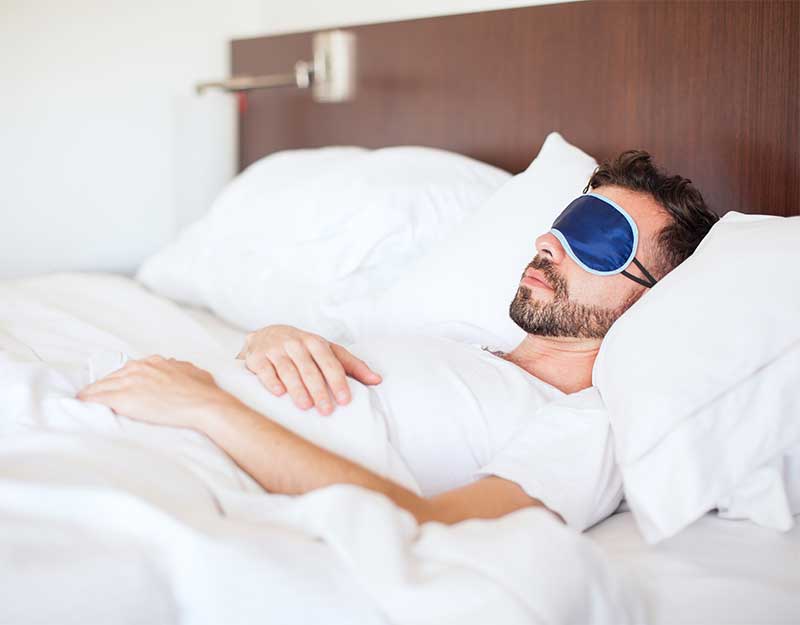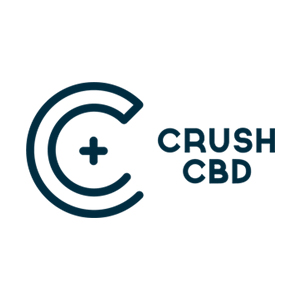No products in the cart.
Does CBD oil help with sleep? Leave a comment
Does CBD oil help with sleep? I took my first dose of CBD oil – via a pipette, dispensing a few drops under my tongue – on a Saturday afternoon and quickly, I felt the positive impact it had. From the Sunday, I slept soundly every single night for the following two months. Honestly, it was that quick – and it went on for eight glorious weeks. Uninterrupted, panic-free, blissful sleep. I felt better in every way.
Unfortunately, after those two months my former sleep terrors began creeping back in, once or twice a week, and I was truly devastated. Crushed, in fact. It had been working – what happened? So, I safely (with research and guidance) increased my CBD dose and once again, I was away.
Does CBD oil help with sleep?
But it wasn’t just my sleep that benefited from my CBD endeavours either. My thoughts weren’t as chaotic; I felt that I could carefully sift through them, categorise them and act on them. I had clarity, I could focus and it felt as if every process in my body was working better. My digestion, my sex life, my emotional agility, plus sleep, all tied in and were working in harmony for the first time in forever.
I felt and became more pleasant, more patient and more consistently stable. PTSD provides peaks and troughs; CBD oil provided stability.
From an expert: How does CBD oil work?
Bea Lyus, Registered Nutritional Therapist, College of Naturopathic Medicine, and Resident CBD Expert at Cannabotech UK, says, “We know very well that anxiety and stress contribute to sleep problems such as insomnia and that CBD can effectively reduce anxiety and stress, therefore aiding a better quality of sleep. However, it’s important to note that a low dosage of CBD may actually cause alertness, whereas a higher dosage will help you to feel drowsy and sleepy.”
Essentially, CBD works by activating our serotonin receptors, which in turn calm the mind and any anxious feelings. “Serotonin is a neurotransmitter found in the brain and the gut which is responsible for managing our hormones and thus our mood changes,” adds Lyus.
The expert continues to explain that research has shown CBD works effectively to target the Endocannabinoid system (ECS) – the body’s network system. “The Endocannabinoid system is like a computer software which sends signals to the brain, nervous system, immune cells, organs. It acts like a main control of restoring balance in all biological functions, from sleep to appetite, memory, mood, immune system, pain control, energy, reproduction and cell replication.” Pretty powerful stuff, huh?
A good night’s sleep is essential to your overall health and wellbeing. Experts recommend adults sleep seven to nine hours1 each night. Proper sleep ensures you feel well-rested and have energy for the next day2. A good night’s rest also contributes to memory formation, helps grow and repair muscle and tissue, and prevents sickness.
Unfortunately, falling asleep or staying asleep can be difficult for certain types of sleepers. As many as 70% of Americans3 report not sleeping the recommended hours, and nearly one-third of American workers sleep less than six hours per night4. Solutions for better sleep and avoiding sleep debt vary. Possible approaches include improved sleep hygiene, prescription sleep aids, and natural sleep aids.
One increasingly popular strategy for sleeping better is taking cannabidiol (CBD), a derivative of cannabis. CBD is commonly used to improve sleep and decrease anxiety. However, the regulation of CBD in the United States is limited, and much more research must be done to determine the exact effects CBD has on sleep and other physical and mental health concerns.
Does CBD oil help with sleep?
About Cannabis and Cannabinoids
While there are many different slang terms for the green, narrow-leafed plant you may recognize, the plant is scientifically called Cannabis sativa5. The word “cannabis” can be used to describe any products made from the plant. Cannabis plants contain multiple chemical compounds, including a group referred to as “cannabinoids.” Out of more than 100 cannabinoids, researchers have primarily studied two that appear to have the greatest impact on humans: tetrahydrocannabinol (THC) and CBD.
What Is Tetrahydrocannabinol (THC)?
Most commonly known effects of cannabis, such as “getting high,” are caused by the cannabinoid, THC6. The term “marijuana” specifically refers to parts of the Cannabis sativa plant that contain THC.
Cannabis plants and derivatives that contain less than 0.3%7 THC are classified as “hemp.” As of 2018, hemp is no longer defined as a controlled substance by the U.S. federal government. As a result, there has been an influx of hemp-related products in the American market. These products are generally marketed as CBD products.
What Is Cannabidiol (CBD)?
CBD, the other commonly known cannabinoid, can be legally sold in the U.S. when extracted from hemp8 and marketed according to relevant regulations. CBD does not have psychoactive properties9 and does not bring about the same effects as THC. Also, CBD does not have effects that would lead to potential dependency10 or risk of abuse.
CBD is an increasingly popular substance in the U.S. While many health benefits have been attributed to CBD, in most cases, scientific validity of its effectiveness is still unclear.
Does CBD oil help with sleep?















